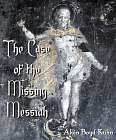
DISTRIBUTION OF WEALTH : SOURCES OF TAXATION

Description
AND ON THE
SOURCES OF TAXATION
By RICHARD JONES
TGS Historical Reprint Series
 Excerpt:
Excerpt:
The word Wealth presents itself to different minds with such variety of meaning, that it will be best to begin by fixing on some conventional limit to the sense in which the term shall be used. The definition of Mr. Malthus is, of the many which have been proposed, perhaps the least objectionable and the most convenient. Wealth, according to him, consists of those material objects which are necessary, useful, or agreeable to mankind.(1) In this restricted sense the word will be used here. Instances of occasional deviation from it, if any occur, shall be marked. It will be understood, however, that this definition is proposed as useful in limiting our subject, not as furnishing the basis of any conclusions relating to it. If a more comprehensive interpretation of the term Wealth should be preferred, the results of the facts or reasonings we shall have to adduce, will be in no degree affected by the change.
All wealth, whatever be its source, is made available for the purposes of man by human labor: by that even the spontaneous productions of the earth must be gathered and appropriated. Hence the hands from which all wealth is first distributed must be those of the laborer. But the laborer is rarely in a condition to retain the whole produce of his exertions. In whatever state of society he exists, some tie, or some want, makes him to a certain extent dependent upon others. Those who constitute the larger proportion of the laboring class throughout the world find no fund accumulated by others, from which they may draw their daily subsistence: they are obliged therefore to raise it with their own hands from the soil. If that soil belongs to others, this circumstance alone makes the peasants at once tributary to the proprietors, and a portion of the produce is distributed as Rent.
If besides the soil other things are needful to facilitate their exertions, to the owner of these things another part of the produce must be resigned, and hence the origin of Profits. The share of the laborer, the reward of mere personal exertion, in whatever shape, or manner, or time, it may be received, constitutes the Wages of labor. Into these three portions, Rent, Profits, and Wages, the annual produce of the land and labor of every country is in the first instance divided: all other revenues are derived from these.
Historical Reprint - From 1831
170 pages approx
Softbound , 5x8 inches















